Humanities
Ross’s humanities curriculum is rooted in real-world experiences, rich complex texts, and student voice. The books we read, conversations we have, and writing we publish incorporate each student’s interest and identity (“Embraced for who you are…”) and push each student to grow as a citizen, activist, and life-long learner (“Empowered to be even more!”).

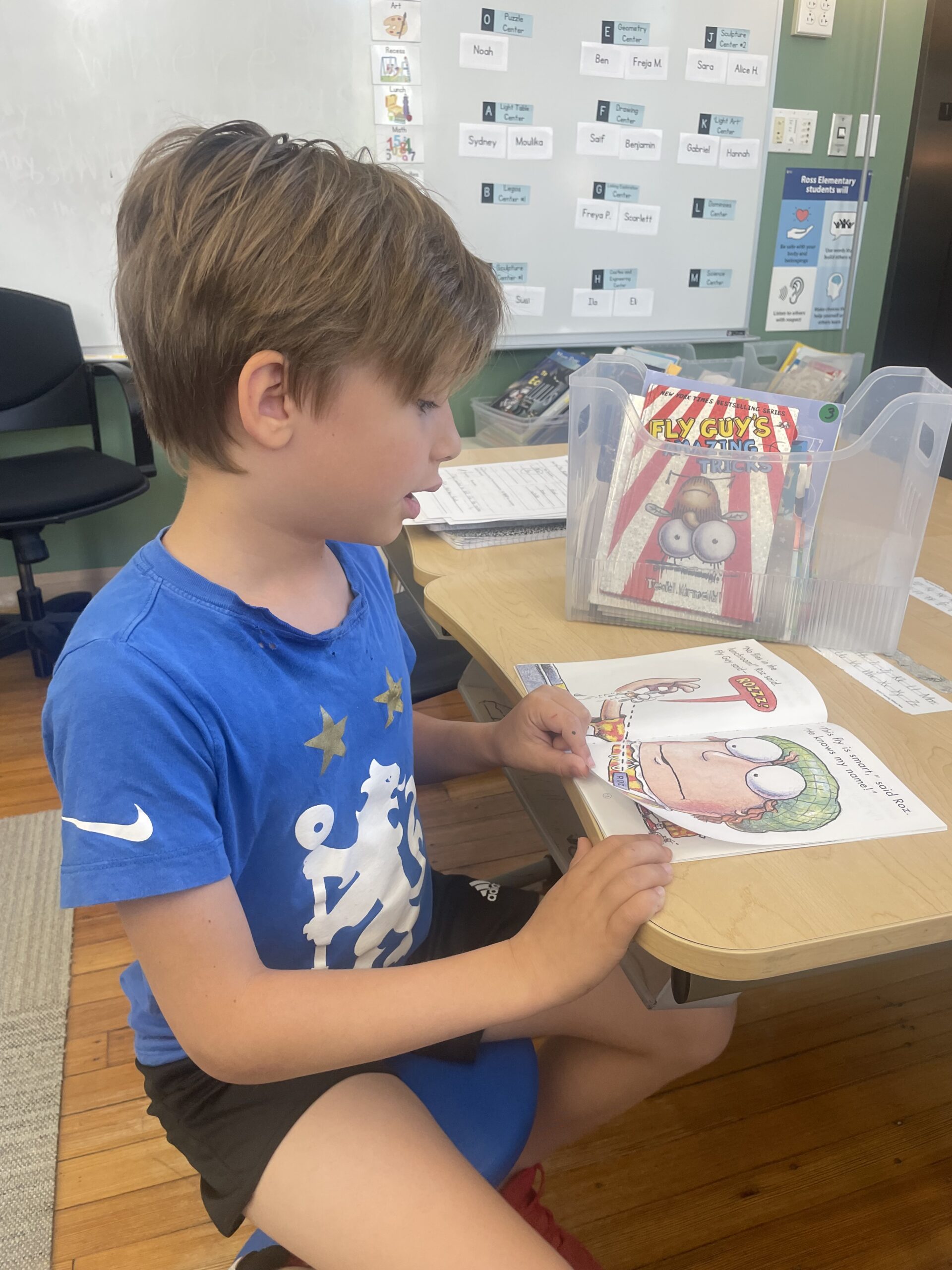
UNITS OF STUDY
Each of our units “empowers students to become inquisitive, informed, and engaged members of society who use critical thinking, inquiry, and literacy to prepare for college, careers, and civic life” (Excerpt from “DCPS’ Way for Social Studies”).
Our units marry literacy skills with rich social studies content. Our units begin with questions of inquiry such as,
- “How have changes in technology affected the way we live?”
- “What can we infer about a time period from its primary sources?”
- “How are heroes from long ago similar to and different from modern-day heroes?”
- and many more.
Students read rich texts representing a variety of perspectives. Through close reading, field trips, research, writing, and hands-on projects, students build knowledge of themselves and the world around them.
For more information about your student’s current unit of study, see the weekly newsletter.
WRITER'S WORKSHOP
We believe that “youngsters deserve to write for real, to write the kinds of texts they see in the world – nonfiction chapter books, persuasive letters, stories, lab reports, reviews, poems – and to write for an audience of readers, not just for the teacher’s red pen” (Lucy Calkins, Guide to the Writing Workshop). Across all grades at Ross, students spend a significant amount of time each day generating new writing, revising, editing, and publishing. Students write across the genres: narrative, informational, and persuasive texts. Given the demands of the Common Core State Standards, we focus on evidence-based talking and writing about the complex texts we read. Ross students love to write and write about what they love!
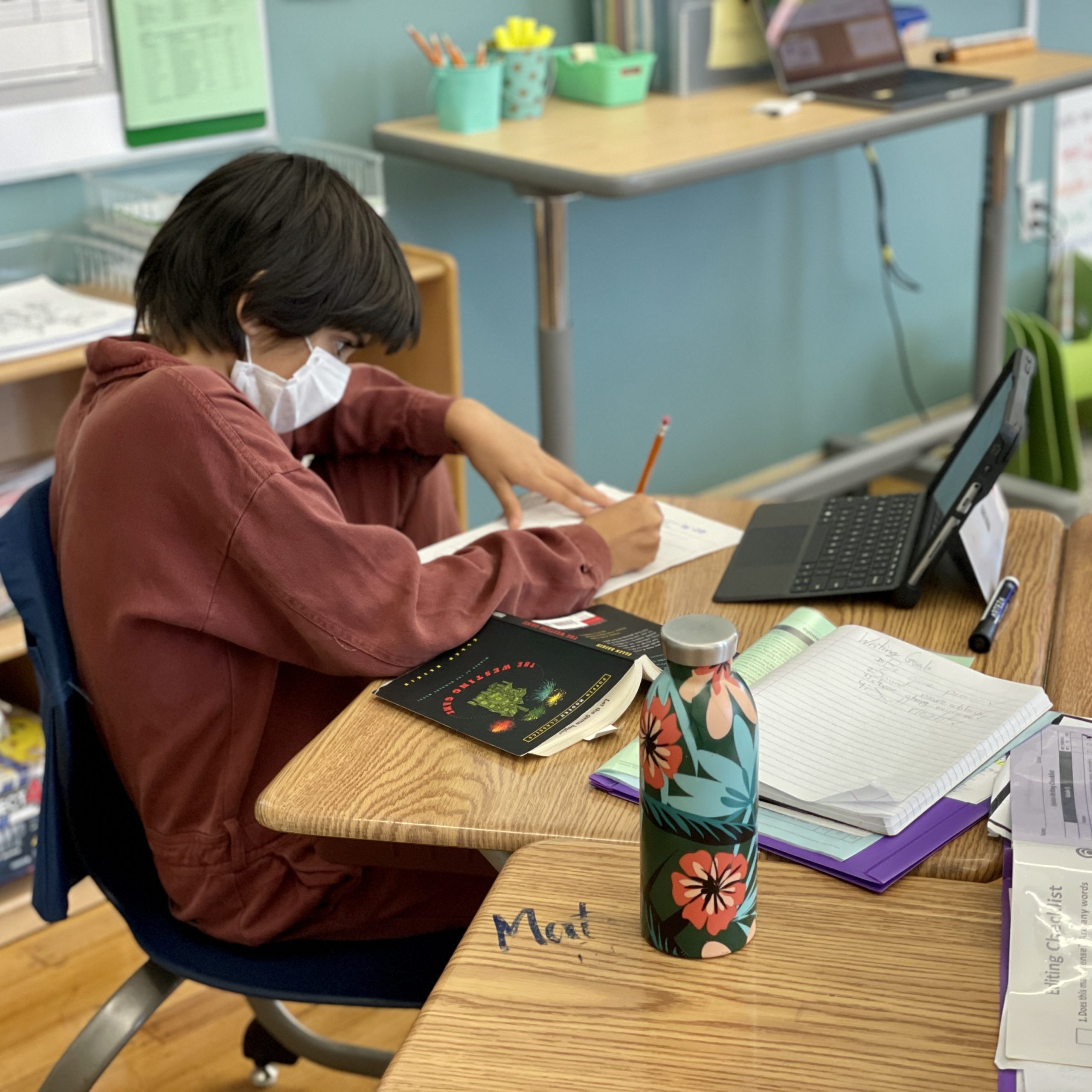
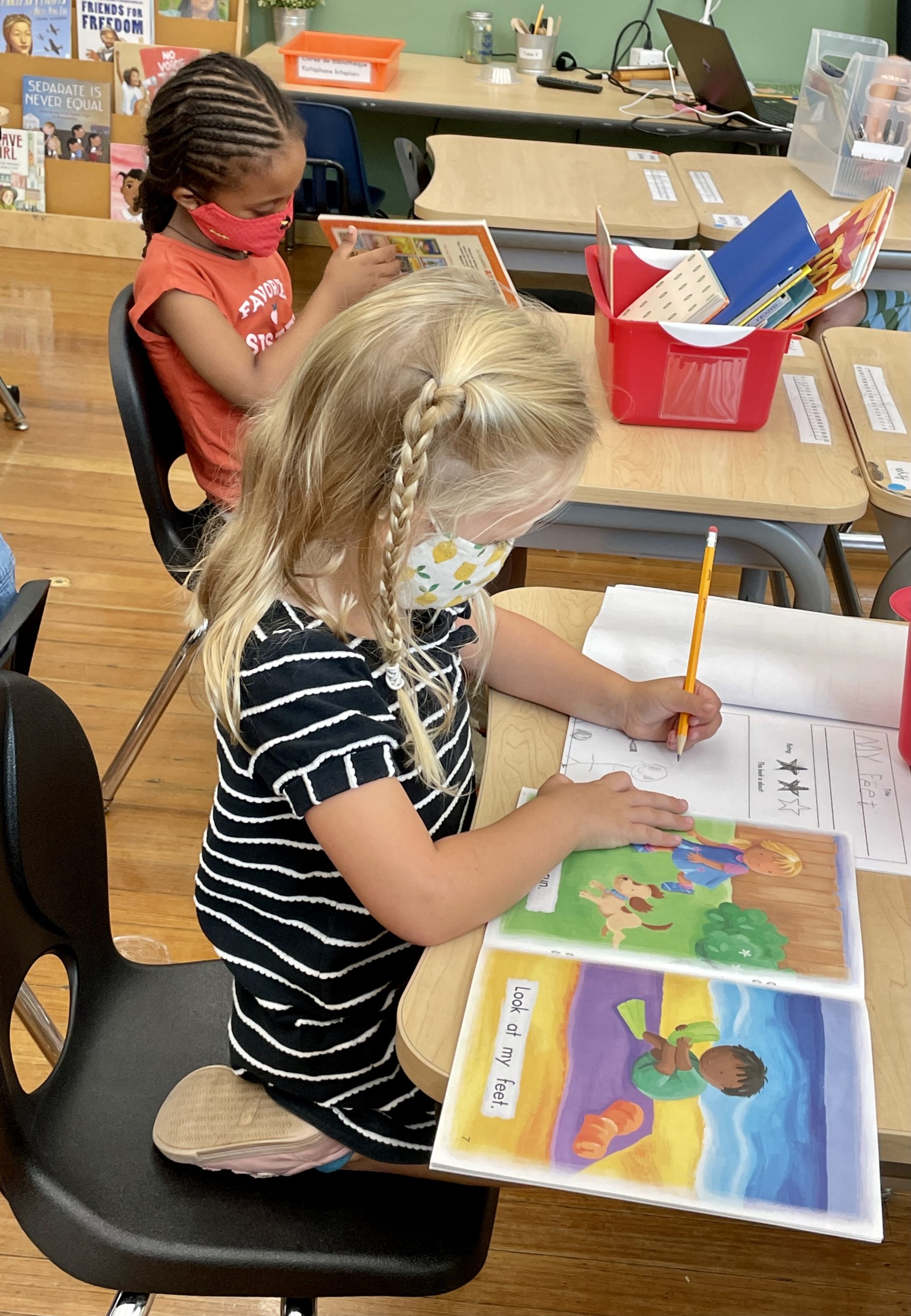
COMMON CORE STANDARDS
When the literacy Common Core State Standards were adopted in 2011, three major shifts made the standards unique. In pursuit of college and career readiness, students are expected to…
- Read sufficiently complex text independently.
- Write effectively to sources (“evidence-based writing”).
- Build and present knowledge through research.
To read the Common Core Standards in their entirety, click here.
GOAL SETTING AND STUDENT GROWTH
In How Children Succeed, Paul Tough writes, “when kids believe they can change their intelligence, they actually do better. They work harder.” At Ross we invite students across all grade levels to participate in goal-setting and a growth mindset that fosters effort. This goal-setting work begins with the Hopes and Dreams each child sets during the first six weeks of school, and culminates in our Spring Student-Led Conference Day. Our reading instruction ensures that students are constantly growing as readers including their ability to choose books, talk and write about books, read books across genres, show independence and stamina, and more. Reading levels are not the only measure of student growth. Because of this, we do not share reading levels with students. Instead, we want our readers to focus on their development of fluency, accuracy, comprehension, and more.
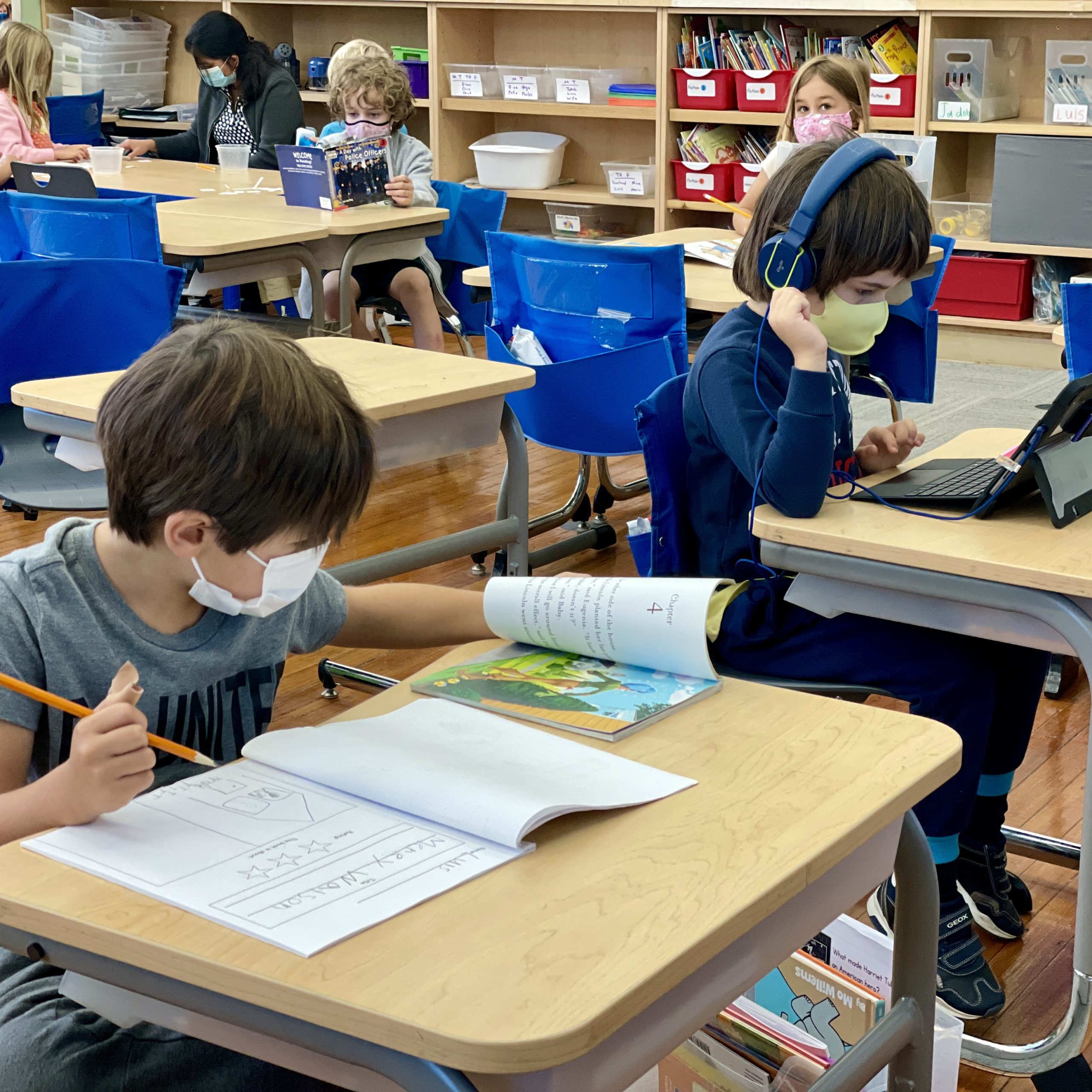
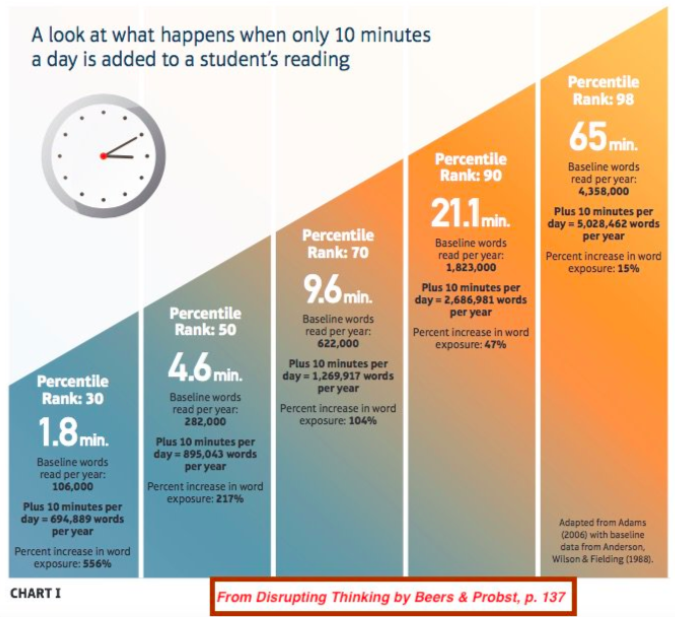
THE IMPORTANCE OF AT HOME READING
WHY?
Research clearly indicates that the more students read at home, the more equipped they will be with necessary vocabulary, executive functioning, and other literacy skills, ensuring proficiency throughout the years.
As teachers, it is our job to teach them the necessary strategies and content needed to independently devour books at their grade-level. We will be working hard to develop stamina, independence, and a love of books across genres. They will have weekly opportunities to browse for books from our school library as well as the libraries in each Ross classroom.
As parents, it is your job to ensure daily at-home reading and follow up with conversations about books, about your student’s thinking, and in turn about the world!
HOW?
Set Routines. Be consistent about when and where reading happens every day. Work with your child to establish the best time and places for maximum engagement and enjoyment.
Provide Feedback. Research shows that the most growth comes from thoughtful engagement and discourse with others. Ask your students about what they are reading. Grow organic conversations about books every day.
Create your own family’s culture of literacy. Read to and with your child. Talk to them about what you are reading and make books a part of your everyday lives.
